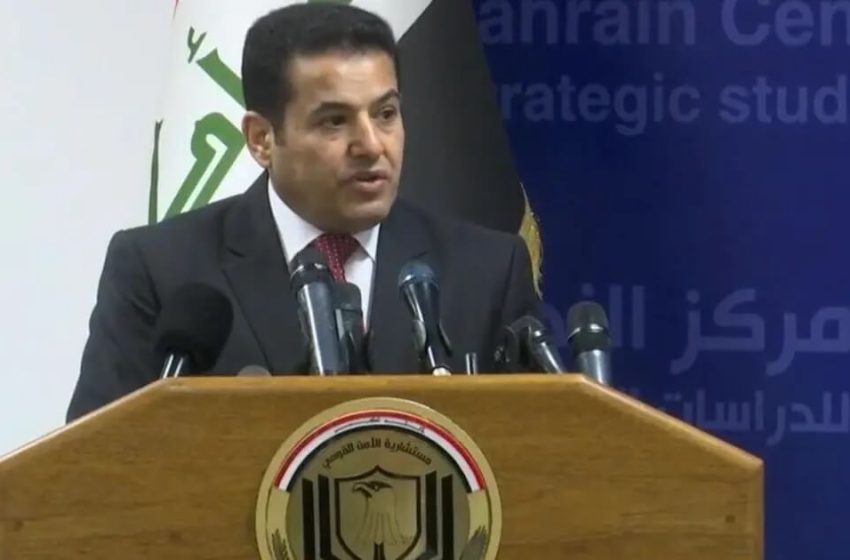Iraq commends results of the security agreement with Iran

The Iraqi National Security Advisor, Qasim Al-Araji. Photo: Al-Arabiya News
Baghdad (IraqiNews.com) – The Iraqi National Security Advisor, Qasim Al-Araji, said on Monday that the joint security agreement between Iraq and Iran has achieved results that have not been yielded between the two countries since 1991.
Al-Araji headed the Iraqi side in the committee formed to implement the joint security agreement between Iraq and Iran, according to the Iraqi News Agency (INA).
The Iraqi National Security Advisor confirmed that the Iraqi Prime Minister, Mohammad Shia Al-Sudani, is eager to implement this agreement, adding that Iraq is keen on Iran’s security and will not allow its territories to be used to destabilize the security of any neighboring country.
Al-Araji indicated that the Iraqi side briefed the Iranians on the work carried out by Iraq in the area that has been identified, which was occupied by Iranian opposition groups, who were all evacuated.
The Iraqi security official clarified that Iranian opposition groups in the Kurdistan region of Iraq were disarmed, according to the agreement, and Iraqi federal forces were deployed on the Iraqi-Iranian border.
The Iraqi government said earlier that members of these groups will be considered refugees, according to the controls of the United Nations High Commissioner for Refugees (UNHCR).
The Iraqi National Security Advisor and the Secretary of the Iranian Supreme National Security Council, Ali Shamkhani, signed a security agreement recently to coordinate between the two countries regarding the protection of their shared borders.
The Iranian Revolutionary Guards Corps Ground Forces announced last March the launch of new attacks against the headquarters of what they described as a separatist terrorist group in Kirkuk, northern Iraq.
Iran repeatedly targets the Kurdistan region of Iraq to bombard what it calls sites of separatist and terrorist groups, while Baghdad denies sheltering any groups threatening neighboring countries.
